Home Insulation Rebates for Charlotte Homeowners
Improving your home’s insulation is one of the smartest ways to lower energy bills, especially with today’s rebate programs. Homeowners in the Charlotte area now have access to multiple state, federal, and utility incentives that make upgrades like attic insulation, air sealing, and crawl space work more affordable than ever. If you’re ready to boost comfort and cut waste, this is the time to act.
Get Started with Standard Today!
Accessing Energy-Saving Insulation Benefits
Accessing energy-saving insulation benefits starts with understanding the rebate programs available to North Carolina homeowners. Working with an experienced insulation contractor can simplify the process of navigating these programs, including federal tax credits, state initiatives like Energy Saver NC, and incentives from Duke Energy. These programs collectively aim to enhance energy efficiency and lower costs through various rebates and credits.
Standard Insulating Company’s team of experts is dedicated to helping Charlotte homeowners access every rebate they qualify for. As a trusted local contractor with decades of experience, we understand how each program works and what documentation is required. We handle the details—from income verification to rebate submissions—so you can focus on making your home more comfortable and energy efficient.
Duke Energy Smart $aver (NC & SC)
Standard Insulating Company is a Smart $aver Authorized Contractor for Duke Energy, which means we’re approved to offer rebates directly and fast-track the process for Charlotte-area homeowners. These rebates are designed to lower energy use, reduce monthly bills, and make insulation upgrades more affordable.
The Duke Energy Smart $aver Program, launched to enhance energy efficiency, offers incentives for residential and commercial customers to upgrade to energy-efficient technologies. By providing rebates on improvements like insulation, the program aims to lower energy bills and reduce environmental impact. Designed to benefit homeowners and businesses, it supports sustainable practices and contributes to North Carolina’s broader energy-saving goals by encouraging cost-effective energy upgrades.
Rebate Benefits
- Attic Insulation Rebate (up to $700): Upgrade your attic from an average R-19 to R-38 and save $0.25–$0.31 per square foot. On a typical 1,500 sq ft attic, that’s $375–$465 back.
- Duct Sealing Rebate (up to $450): Professional duct testing and sealing can cut air leakage by 20–30%. Earn up to $450 off.
Upgrading attic insulation in a 20-year-old home can reduce annual cooling bills by $200–$300 and heating costs by $100–$150 in Charlotte’s climate zone. Duct sealing alone often cuts energy waste by 10–15%.
Program Eligibility
- Duke Energy residential electric customer in NC or SC service territory.
- Installation by a Duke Energy Trade Ally contractor (that’s us).
- Home must use central air conditioning or electric heating (non-electric HVAC not eligible).
- Manufactured homes excluded from attic insulation rebates; multifamily buildings have separate incentives.
How to Claim Your Rebate
- Schedule your free energy audit with us to start the process.
- Review your audit report and recommended measures with our team.
- We complete insulation or duct sealing and apply the rebate directly to your invoice.
- Enjoy immediate savings and improved comfort. (Duke Energy may inspect the work post-install.)
North Carolina Energy Rebates
Energy Saver North Carolina
The Energy Saver NC program provides up to $16,000 per home for whole-house energy improvements. Standard Insulating Company is a prequalified contractor for this initiative, covering Mecklenburg, Cabarrus, Gaston, Union, and surrounding counties.
Energy Saver North Carolina Benefits
- Up to $1,600 for insulation and air sealing upgrades, including attic, wall, floor, and crawl space insulation.
- Rebates tiered by income: households at or below 80% AMI receive full rebates; those at 80–150% AMI receive partial rebates.
- Combined measures (e.g., insulation plus efficient HVAC) can push total incentives toward the $16,000 cap.
Energy Saver North Carolina Eligibility
- Focuses on low- and moderate-income households in North Carolina.
- Rebates vary by households income
- Open to single-family homeowners and renters with approval.
- Requires income verification for rebate eligibility.
- Must use DEQ-registered contractors for installations.
North Carolina Weatherization Assistance Program (WAP)
The North Carolina Weatherization Assistance Program, initiated in the 1970s, aims to improve energy efficiency in homes of low-income families. Administered locally by Mecklenburg County DSS, WAP delivers free weatherization services to income-qualified households (up to 200% federal poverty level).
Weatherization Assistance Program (WAP)Benefits
- No-cost installation of insulation, air sealing, and HVAC repairs.
- Focus on the elderly, disabled, and families with children.
Weatherization Assistance Program Eligibility
- Open to North Carolina residents, homeowners, renters.
- Recipients of SSI, TANF, or Work First qualify.
- Requires landlord approval for renters participating.
- High-energy-burden households receive prioritization.
- Possible waitlists due to high demand.
Federal Home Energy Rebates Programs
Inflation Reduction Act (IRA) Tax Credits
The IRA Tax Credit Program encourages homeowners to work with insulation contractors to make energy-efficient home upgrades by offering federal tax credits to offset initial costs. These credits make sustainable improvements more affordable and help reduce energy use and carbon footprints. Homeowners can save on energy bills long-term and aid in fighting climate change by participating in the program.
The Energy Efficiency Home Improvement tax credit reduces what you owe in federal income tax by 30% of your insulation and air sealing material costs, up to $1,200. It can be applied to:
Home Electrification and Appliance Rebate (HEAR)
Launched in January 2025, the Home Electrification and Appliance Rebate (HEAR) program offers point-of-sale rebates for energy-efficient appliances and electrification upgrades. With benefits up to $14,000 per household, including $8,000 for heat pumps and $1,600 for insulation, it’s designed to assist low- and moderate-income households below 150% of the Area Median Income, promoting energy efficiency.
Home Electrification and Appliance Rebate (HEAR) Eligibility
- Household income must be below 150% of Area Median Income.
- Property must be a primary residence within North Carolina.
- Rebates apply to energy-efficient projects such as attic insulation upgrades.
- Applicant must provide proof of income eligibility.
- Rebates apply only to new installations or replacements.
Homeowner Managing Efficiency Savings (HOMES)
Launched in 2023, the Homeowner Managing Efficiency Savings (HOMES) program offers incentives for homeowners to undertake energy-efficient upgrades in their residences. Focusing on lowering energy bills and enhancing home comfort, the program benefits all income levels, with greater support for low- and moderate-income households, encouraging sustainable living and reducing carbon emissions.
Homeowner Managing Efficiency Savings (HOMES) Eligibility
- Homeowner Managing Efficiency Savings (HOMES)
- Must be a primary residence in North Carolina.
- Home must achieve at least 20% energy savings.
- Applications must include comprehensive energy audit results.
- Income documentation required for low-income rebate eligibility.
- Upgrades must be performed by certified insulation contractors.
Who manages the HEAR and HOMES programs?
Both the Home Electrification and Appliance Rebate (HEAR) and Homeowner Managing Energy Savings (HOMES) programs are active in North Carolina under the Energy Saver North Carolina initiative. Both programs are federally funded through the Inflation Reduction Act (IRA) but administered by the DEQ. North Carolina was the first state to fully launch both programs simultaneously.
Get Help Claiming Energy Rebates for Your Insulation Project
Don’t leave energy rebates on the table. When you work with Standard Insulating Company, we make sure you get every dollar you’re eligible for without the headache.
Here’s how we help:
- We confirm your rebate options upfront. Whether it’s Duke Energy’s Smart $aver rebate, state programs, or federal tax credits, we’ll walk through what applies to your project.
- We handle the paperwork. Rebates often come with fine print and forms. We’ll manage the submission process, so you don’t have to chase down utility companies.
- We ensure the work qualifies. Every rebate has standards. Our team knows exactly what’s required, from insulation R-values to proper air sealing, so you don’t risk being denied.
- We’ll document everything. We provide the proof of installation and compliance details you’ll need for approval.
Want to know what rebates your Charlotte-area home qualifies for?
Fill out the form and we’ll help you get started.
Standard Insulating Company – Your Trusted Insulation Partner
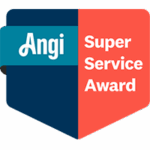
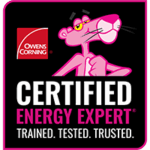
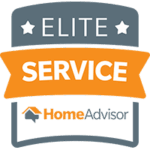
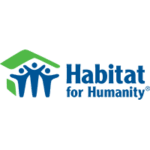
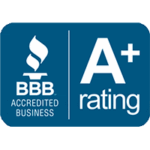
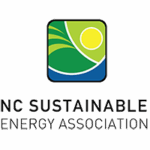
What insulation upgrades qualify for Duke Energy’s Smart $aver rebate?
Duke Energy’s Smart $aver rebate program covers insulation upgrades to attics, walls, and floors, along with air sealing services. Homes must meet certain energy-efficiency criteria, and work must be performed by a certified contractor to qualify.
How do I apply for the Energy Saver NC insulation rebate program?
Homeowners in North Carolina can apply through their utility provider or through state-supported platforms listed on EnergySaverNC.org. You’ll need contractor invoices and project details to complete the application. Rebates are often processed in 4–6 weeks.
What documents do I need to claim the federal insulation tax credit?
You’ll need a manufacturer’s certification statement, proof of purchase, and IRS Form 5695. For up-to-date details on eligibility, consult the IRS guidance on energy credits.
Are insulation rebates available for existing homes or just new construction?
Most insulation rebates, including those from Duke Energy and the federal government, are designed for existing homes—not new builds. These programs aim to encourage upgrades that improve energy efficiency in older, less efficient housing stock.
